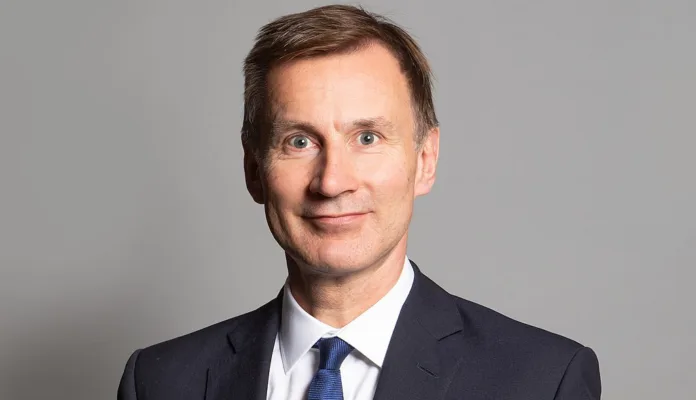Chancellor Jeremy Hunt commends Tory MP for his “courageous” acknowledgement of error after sharing colleagues’ numbers on a dating app
In a notable acknowledgement of personal accountability within the political sphere, Chancellor Jeremy Hunt has publicly praised Conservative MP William Wragg for his apology regarding a recent incident involving the misuse of a dating app. Wragg, caught in a controversy for distributing fellow MPs’ personal contact information via a dating app, has expressed remorse for the “hurt” his actions have caused, describing his behaviour as a lapse in judgment driven by fear of personal compromise.
The incident, which came to light through reports of unsolicited messaging and the sharing of inappropriate content among political circles, has stirred significant security concerns. According to police reports, at least 12 men, including a government minister, advisers, and political journalists based at Westminster, were targeted with unrequested messages, some of which included explicit images. In a surprising turn of events, it was revealed that two MPs had responded to these unsolicited advances with images of themselves.
Embed from Getty ImagesWragg’s admission to the Times about his involvement in these exchanges paints a picture of a man grappling with the consequences of his vulnerability. The MP for Hazel Grove in Greater Manchester since 2015 confessed to sharing intimate images with a contact from the gay dating app Grindr, fearing the repercussions of “compromising” material held against him. Wragg’s attempt to meet the demands for contact numbers, as he battled with the anxiety of exposure, underscores the complex web of pressures facing individuals in the public eye.
The Conservative Party, faced with this delicate situation, has yet to take disciplinary action against Wragg, citing an ongoing police investigation into the matter. This restraint reflects the broader challenges of addressing such personal transgressions within the framework of political accountability and security.
Labour’s shadow chancellor, Rachel Reeves, and Liberal Democrat leader, Sir Ed Davey, have echoed the sentiment of concern surrounding the incident, emphasizing the importance of allowing the police investigation to unfold without prejudice. This stance highlights a shared understanding across party lines of the potential implications of such breaches on parliamentary security and the need for vigilance in protecting personal and professional boundaries.
As the investigation progresses, the House of Commons has reiterated its commitment to security, urging those affected to seek guidance from the Parliamentary Security Department. This incident serves as a stark reminder of the vulnerabilities inherent in the digital age, where personal indiscretions can have far-reaching effects on professional integrity and national security.
The response to Wragg’s public apology, particularly from figures like Jeremy Hunt, suggests a recognition of the value of transparency and remorse in navigating the fallout from such incidents. As the political community and the public await further developments, the discourse surrounding privacy, accountability, and the responsible use of digital platforms continues to evolve, underscoring the need for a balanced approach to addressing the challenges of modern communication and public life.
